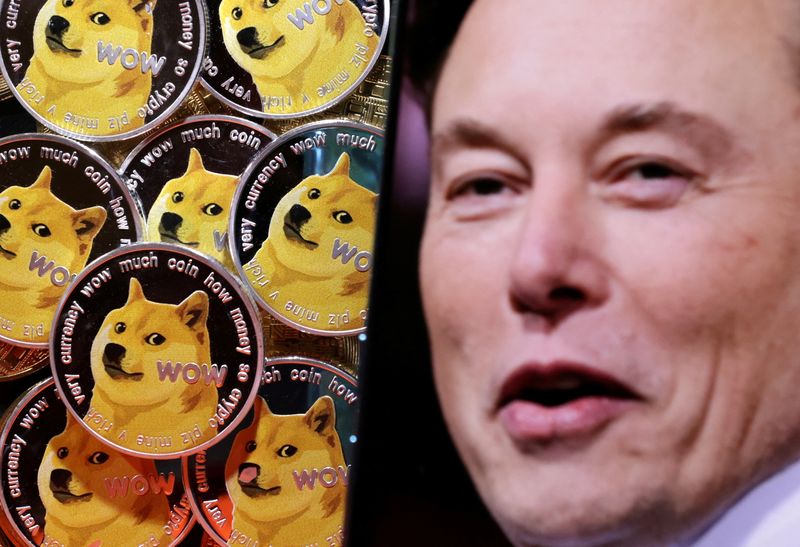By Jonathan Stempel
NEW YORK (Reuters) - Elon Musk asked a U.S. judge on Friday to throw out a $258 billion racketeering lawsuit accusing him of running a pyramid scheme to support the cryptocurrency Dogecoin.
In an evening filing in Manhattan federal court, lawyers for Musk and his electric car company Tesla (NASDAQ:TSLA) Inc called the lawsuit by Dogecoin investors a "fanciful work of fiction" over Musk's "innocuous and often silly tweets" about Dogecoin.
The lawyers said the investors never explained how Musk intended to defraud anyone or what risks he concealed, and that his statements such as "Dogecoin Rulz" and "no highs, no lows, only Doge" were too vague to support a fraud claim.
"There is nothing unlawful about tweeting words of support for, or funny pictures about, a legitimate cryptocurrency that continues to hold a market cap of nearly $10 billion," Musk's lawyers said. "This court should put a stop to plaintiffs' fantasy and dismiss the complaint."
In a footnote, the lawyers also rejected the investors' claim that Dogecoin qualified as a security.
The investors' lawyer, Evan Spencer, said in an email: "We are more confident than ever that our case will be successful."
Investors accused Musk, the world's second-richest person according to Forbes, of deliberately driving up Dogecoin's price more than 36,000% over two years and then letting it crash.
They said this generated billions of dollars of profit at other Dogecoin investors' expense, even as Musk knew the currency lacked intrinsic value.
Investors also pointed to Musk's appearance on a "Weekend Update" segment of NBC's "Saturday Night Live" where, portraying a fictitious financial expert, he called Dogecoin "a hustle."
The $258 billion damages figure is triple the estimated decline in Dogecoin's market value in the 13 months before the lawsuit was filed.
Dogecoin Foundation, a nonprofit, is also a defendant and seeking the lawsuit's dismissal.
Musk's posts on Twitter, which he owns, have prompted multiple lawsuits.

He won a court victory on Feb. 3 when a San Francisco jury found him not liable for tweeting in August 2018 that he had arranged financing to take Tesla private.
The case is Johnson et al v. Musk et al, U.S. District Court, Southern District of New York, No. 22-05037.